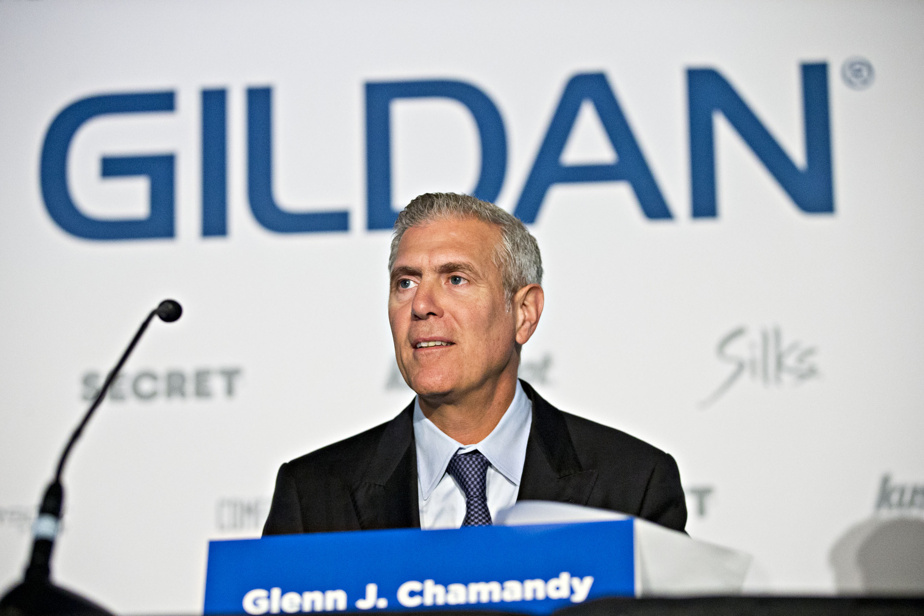
(Montreal) Former Gildan boss Glenn Chamandy's annual pay has topped US$10 million over the past three years, but the board of directors has accused him of “significantly undermining” the company's management “in recent years”. “As part of a shareholder battle rocking the Montreal apparel maker.
Although Mr. Chamandi vehemently denied these allegations, the Board of Directors still determined that his work was satisfactory enough to pay him annual bonuses in 2021 and 2022.
Although he will not receive annual bonuses in 2023, his total compensation will still reach 10.2 million US dollars, the equivalent of 13.8 million US dollars, according to regulatory filings sent to shareholders.
The emoluments were granted at a time when the board of directors alleged that the company's owner had been disengaged “in recent years” from the day-to-day management of the company. “Mr. Chamandi came to the office only four times a month and sent only a few professional emails a day,” the board alleged in a shareholder circular.
“At such a critical time in Gildan's history, the board believes the company cannot remain in the hands of a distracted and absent CEO,” the directors said.
This version was rejected by Mr Chamandi when it was first mentioned in January. Mr. Chamandi replied, “I am saddened by this premeditated attempt to publicly undermine my record and what is worse from a corporate perspective is that the reckless behavior of the board has also tarnished the image of a great company.” Advertisement
Major shareholders have come to the businessman's defense, notably American firm Browning West and Montreal asset manager Zarislowski Fraser, calling for the replacement of directors.
Shareholders will have a chance to decide the issue at the annual meeting in Montreal on May 28.
If the activist shareholders get majority support, it will pave the way for Mr. Chamandi's return to office.
Pending eviction payment
In the document, it is indicated that Mr Chamandi will claim a bonus of “about” US 38 million, which represents about 50 million. Last year, the board estimated that an executive would be entitled to a severance payment of about 20 million US dollars, or about 27 million, in the event he was fired without cause.
The company's board said an “informed decision cannot be taken” on whether part or all of the severance package will be paid until shareholders have had their say.
A contradictory message
In this context, there appears to be some contradiction in the Council's message, notes Ivan Tchotourian, professor and co-director of the Center for Studies in Economic Law at Laval University.
“It's a bit of a problematic message, because of course, we can't blame him for something and, on the other hand, give him a substantial salary,” answers the governance expert.
However, several factors may play a role in evaluating Mr. Chamandy's remuneration, Mr. Choutourian said nuancedly. Remuneration is set according to certain criteria, especially financial returns, regardless of judgment regarding the role the businessman actually played in achieving the goals.
More generally, the conflict triggers the limitations of long-term compensation programs based primarily on share performance, according to François Dauphin, president and CEO of the Institute on Private and Public Organizations (IGOPP).
These programs are designed to align a manager's interest “as closely as possible” with that of shareholders, but “it has little to do with the CEO's personal or personal characteristics,” Mr. Dauphin stated.
Mr. Dauphine says that if the performance of the company is good, it may take some time for the directors to notice that the big boss's commitment is nowhere. “We meet occasionally, but we are not on the field every day. »
The decision to fire a CEO, especially when he or she is an entrepreneur, should be carefully considered. It's common for the council to take time to conduct an internal investigation “as long as it looks like it's working from the outside.”
The board of directors and Mr. Chamandi gave different versions, but it turned out that there were differences of opinion about strategic planning and succession.
These discussions on succession suggest the board has begun some work to plan a new strategic chapter and try to make a smooth transition, Mr. Dauphin believes. “Perhaps some ground work has been put in place. I think all these things that should have been done in a systematic way have not worked out. »
Mr. Tchotourian also believes the board has attempted a certain smooth transition with the founder, which could explain recent years' pay. Mr. The strong support of important shareholders for Chamandi, demonstrated by their displeasure after his dismissal, according to him, complicates the board's work.
“Mr Chamandi is still supported by some shareholders. So shareholders are likely to challenge the board of directors if he is compensated too little. You are given sticks to beat. »




